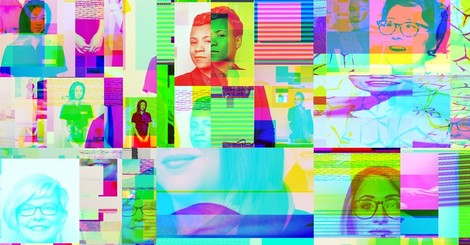Your podcast discovery platform
Curious minds select the most fascinating podcasts from around the world. Discover hand-piqd audio recommendations on your favorite topics.

piqer for: Global finds Technology and society
Prague-based media development worker from Poland with a journalistic background. Previously worked on digital issues in Brussels. Piqs about digital issues, digital rights, data protection, new trends in journalism and anything else that grabs my attention.
Silicon Valley: Women In The Boy's Club
Bethanye Blount has worked in the tech industry for over 20 years, leading engineering teams at reddit, Facebook and Second Life.
“Over the years, she’s experienced—many times—the sensation of walking up to a group of male colleagues and noticing that they fell quiet, as though they’d been talking about something they didn’t want her to hear. She’s been asked to take notes in meetings. She’s found herself standing in elevators at tech conferences late at night when a guy would decide to get, as she puts it, handsy. When she and a male partner started a company, potential investors almost always directed their questions to him—even when the subject clearly fell in Blount’s area of expertise,” wrote the Atlantic.
Blount is not the only one, according to the Atlantic, and the sexism, misogyny and unconscious gender biases are prevalent in Silicon Valley. According to a 2015 survey quoted in the article, 59% of women in tech have felt they have not had the same opportunities as their male counterparts, while 60% faced unwanted sexual advances.
“Studies show that women who work in tech are interrupted in meetings more often than men. They are evaluated on their personality in a way that men are not. They are less likely to get funding from venture capitalists, who, studies also show, find pitches delivered by men—especially handsome men—more persuasive,” points out the Atlantic.
On top of that comes Silicon Valley’s gender disparity, with only 25% of all computing occupations and 14% of executive positions held by women.
A worthy read for males and females alike, the Atlantic article goes beyond finger pointing with a search for solutions to improve conditions for female employees in tech. In an insightful long-read, the author considers whether unconscious-bias training, anti-bias apps or quotas could turn the boy’s club into a more diverse and inclusive working environment.
